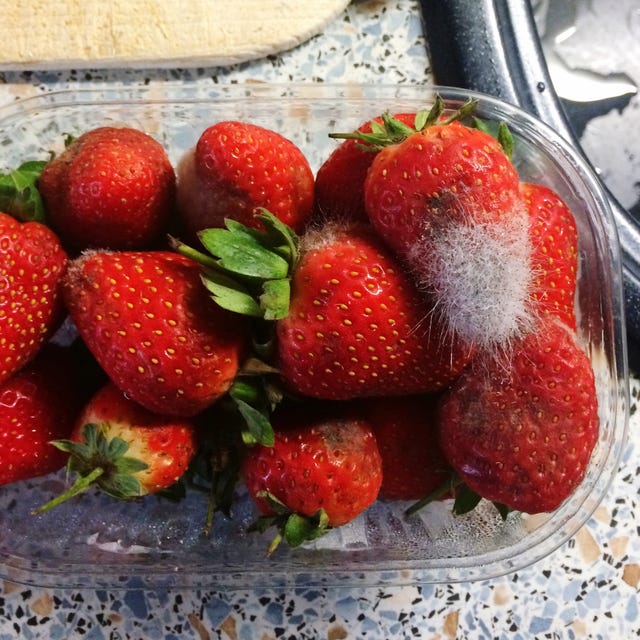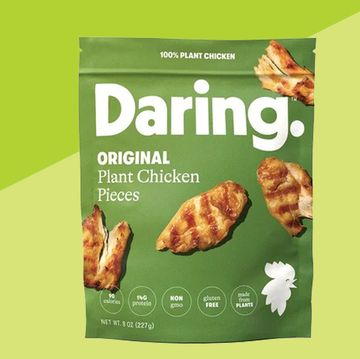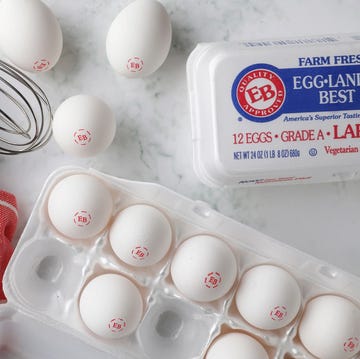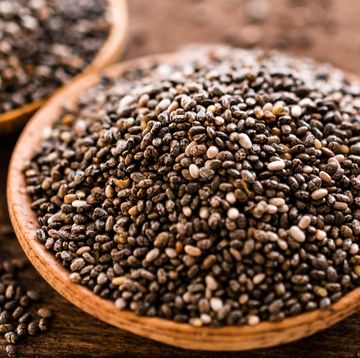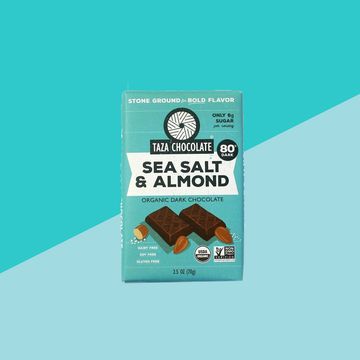Baby Formula
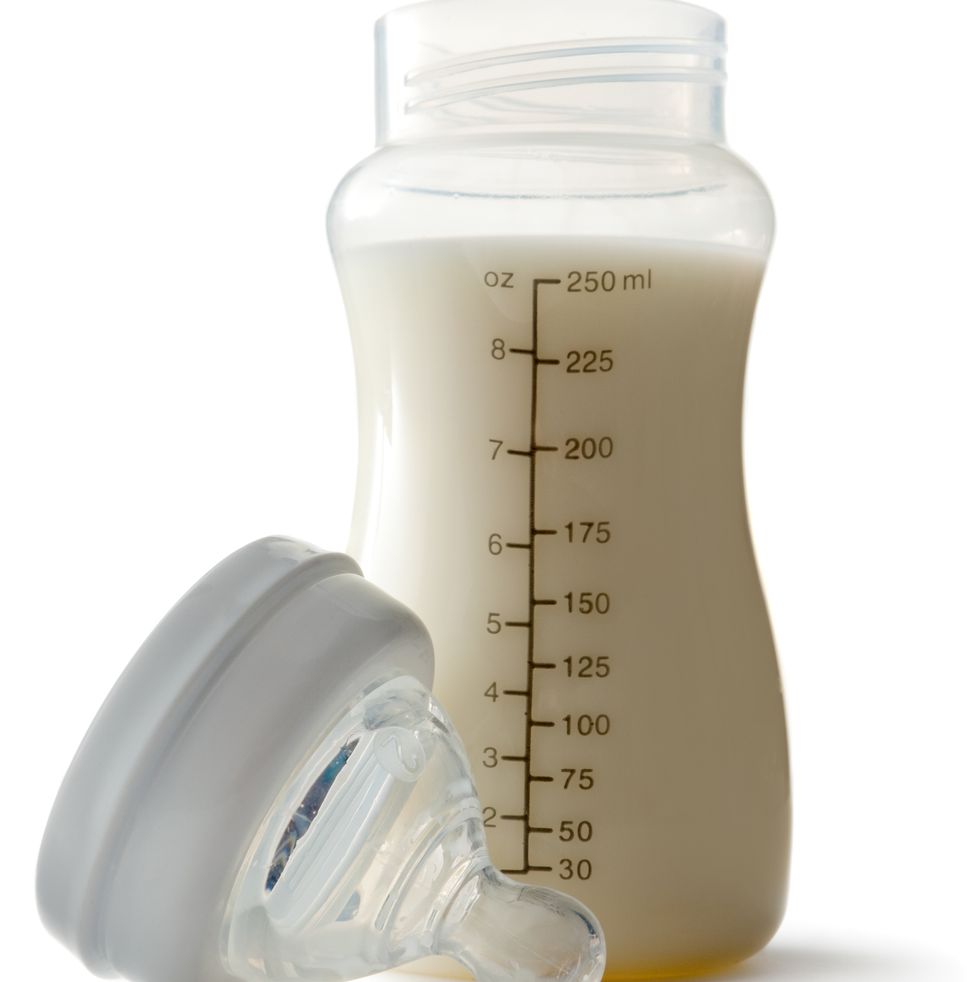 Floortje//Getty Images
Floortje//Getty Images“This is the most important one on the list,” says Dr. Schaffner. “It’s the sole source of nutrition for babies being fed formula. We know it contains the listed nutrients until the date on the label. But feeding your baby this after that date could be contributing to a nutrient deficiency.” That means any formula should be tossed after the “use-by” date.
Eggs
 Armando Rafael//Getty Images
Armando Rafael//Getty ImagesFederal regulation doesn't require either a “sell-by” or a “use-by” date on eggs, though it may be required by the state. But you’ve actually got lots of time to use up your eggs. “Eggs have a shelf life of three to five weeks,” says Isabel Maples, M.Ed., R.D.N., spokesperson for the Academy of Nutrition and Dietetics. “Even if the sell-by date passes, they’re still okay to eat if they’ve been kept in a fridge at the proper temperature of 40 degrees or colder.” But throw any cracked eggs away because of the risk of salmonella.
Hard-cooked Eggs
 murka99 / 500px//Getty Images
murka99 / 500px//Getty ImagesAdvertisement - Continue Reading Below
Egg Substitutes
 imagenavi//Getty Images
imagenavi//Getty ImagesUnopened, egg substitutes will last 10 days in the fridge. But once opened, use them within 3 days, says Maples.
Milk, Half and Half, Whipping Cream
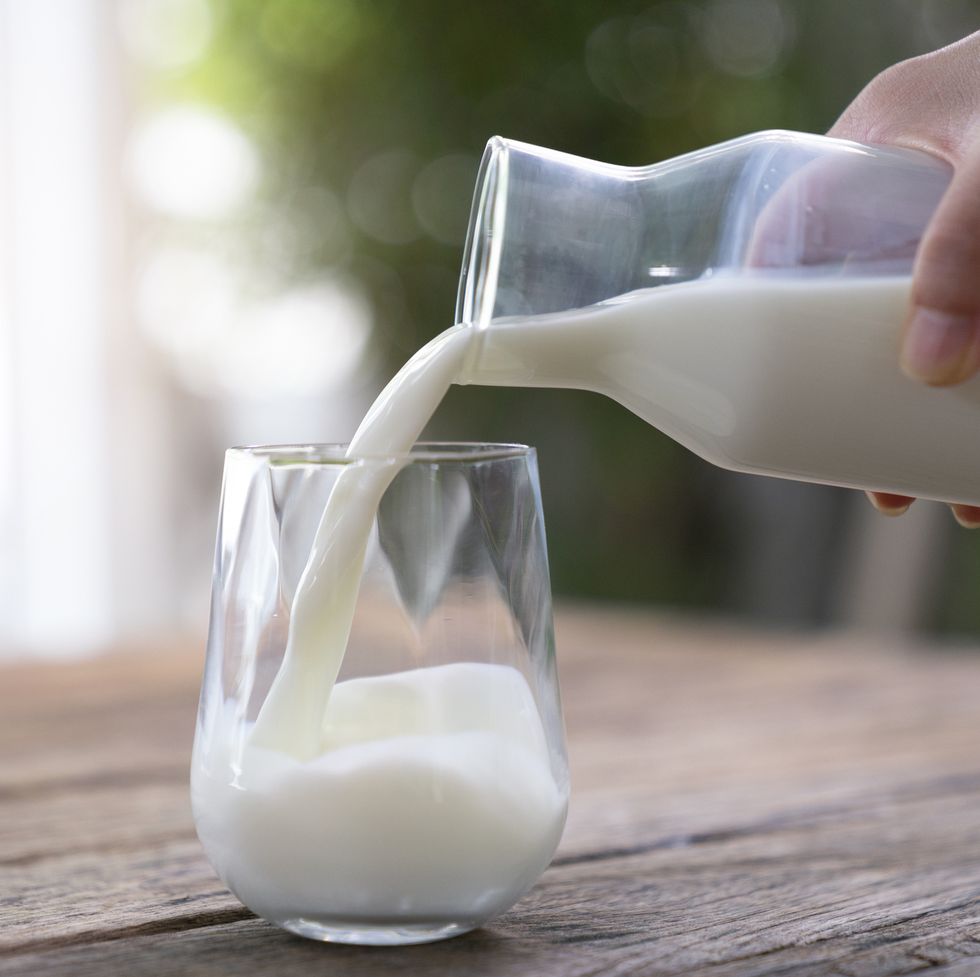 krisanapong detraphiphat//Getty Images
krisanapong detraphiphat//Getty Images“Milk products have a protein content that’s a good growing medium for bacterial action,” says clinical dietician Katherine Zeratsky, R.D.N., with Mayo Clinic. “If they develop a sour smell, off color or curdling, you’ll obviously want to toss them.” Typically these type of milk products last a week once opened. Raw milk, which has not been pasteurized to destroy disease-causing bugs such as salmonella, E. coli, listeria, and campylobacter, is not safe to consume under any circumstances.
Cream Cheese, Cottage Cheese, Ricotta
 Dulin//Getty Images
Dulin//Getty ImagesAdvertisement - Continue Reading Below
Shredded Cheese
 Adam Gault//Getty Images
Adam Gault//Getty ImagesShredded cheese usually has a sell-by date. Unopened, it may last a week past that date. But once opened, mold may develop quickly so use within a few days. If you see any growth, toss the entire bag because you have no idea how far the mold extends, says Zeratsky.
Soft Cheese
 Debby Lewis-Harrison//Getty Images
Debby Lewis-Harrison//Getty ImagesSemi-firm Cheese
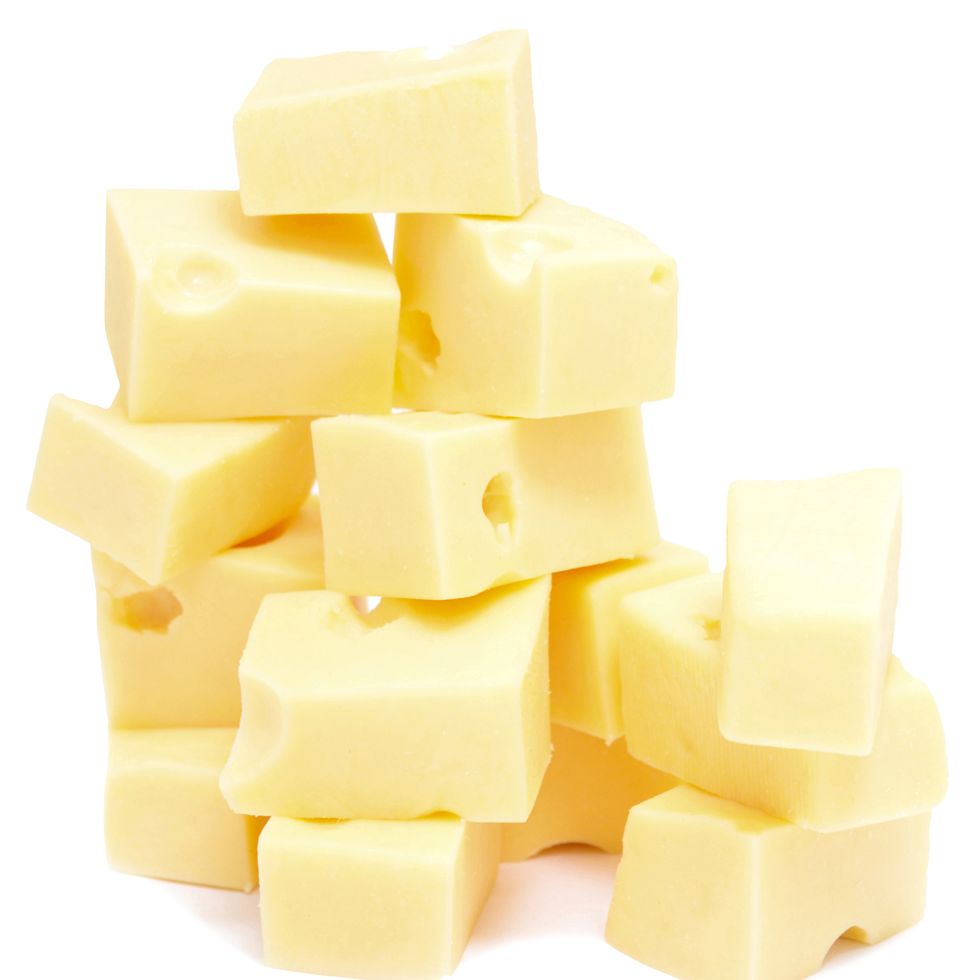 happyfoto//Getty Images
happyfoto//Getty ImagesCheddar, Gouda, Swiss, and other semi-firm cheeses can be stored up to six months unopened, or three to four weeks after opening. Because they have less water content than soft cheeses, the spoilage won’t spread as quickly, so you can cut off any mold, leaving a margin of about an inch, says Maples.
Advertisement - Continue Reading Below
Hard Cheese
 Steve Cicero//Corbis
Steve Cicero//CorbisHard cheeses, such as parmesan or Romano, which have little moisture content, can last for many months after the sell-by date, says Zeratsky. It's fine to cut off any visible mold and use.
Cooking Oil
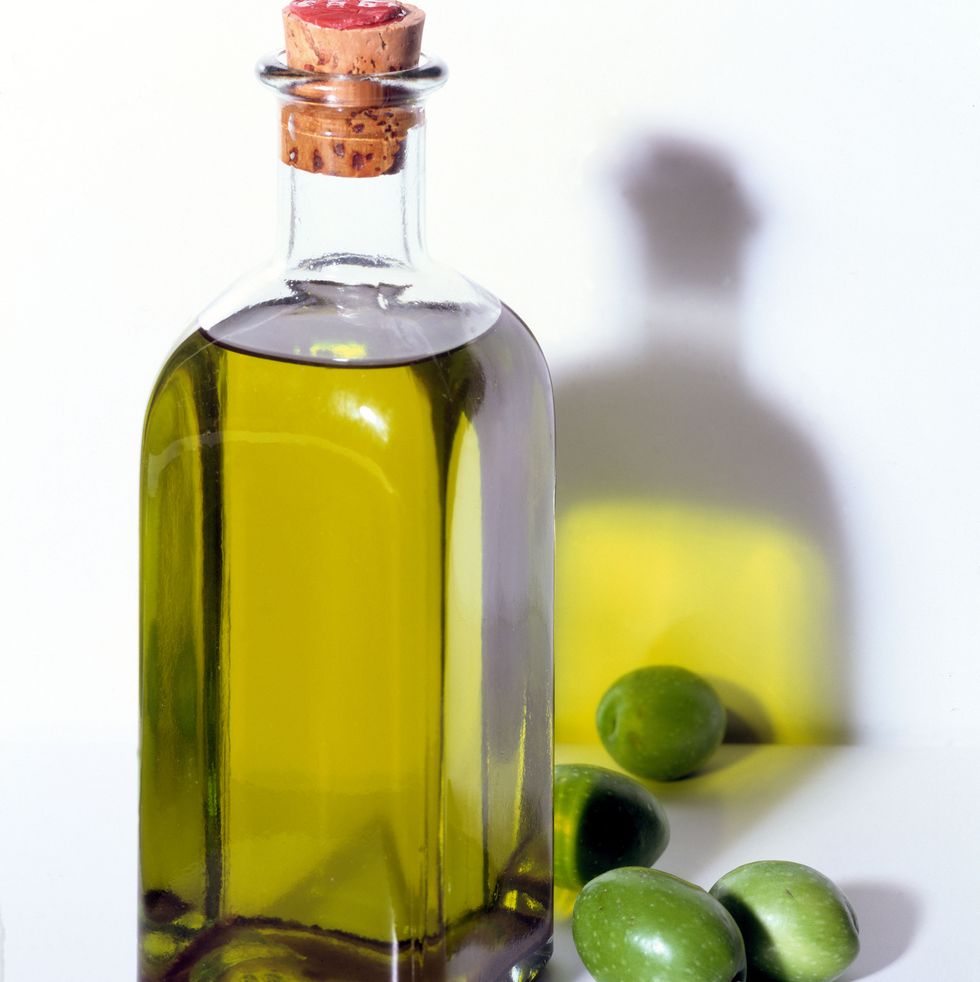 Brian Hagiwara//Getty Images
Brian Hagiwara//Getty ImagesMost oils will last a year on the shelf and about six months once opened. Keeping them away from heat and light will help extend their lifespans. In time, they develop a rancid, bitter taste and should be discarded, says Zeratsky.
Head Lettuce and Cabbage
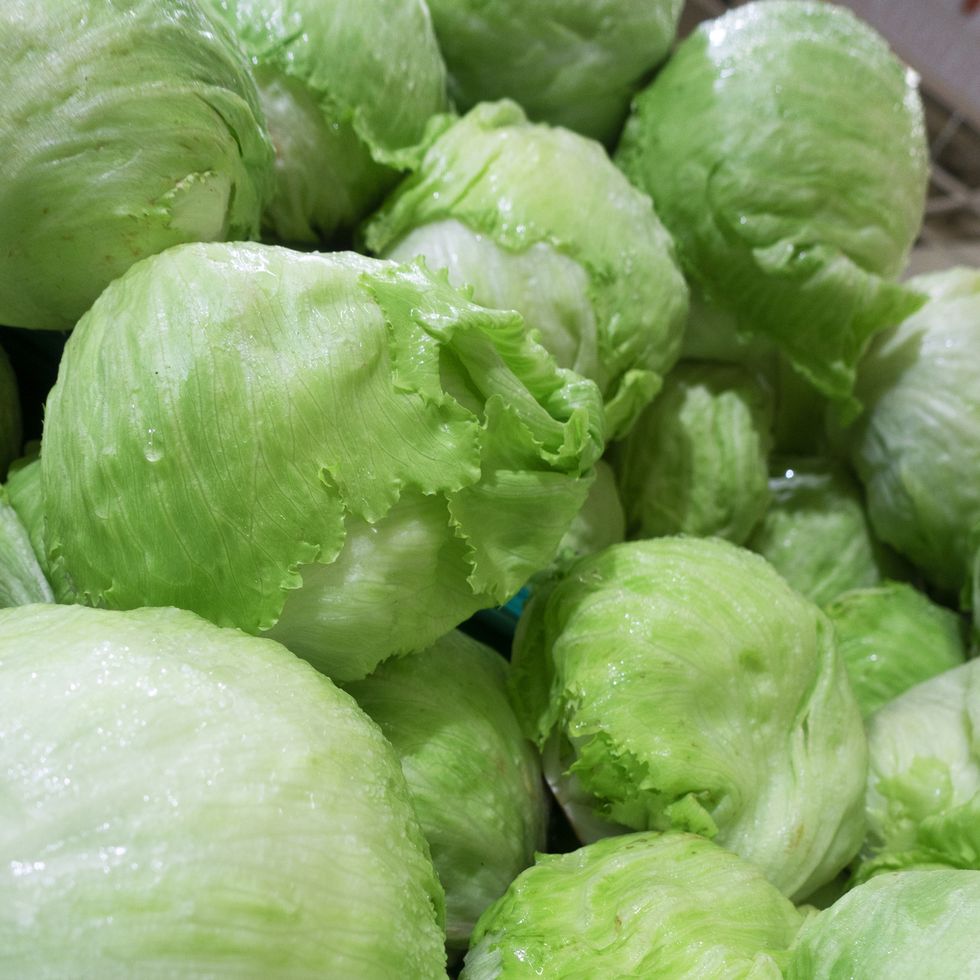 Dontstop//Getty Images
Dontstop//Getty ImagesHead lettuce will last about five days in the fridge, but make sure it’s dry, because wet lettuce will spoil more quickly. “Leafy greens account for about half the food safety outbreaks with produce,” says Maples. That means you should toss the whole thing if it begins to turn slimy. Cabbage can last for months; just peel off the outer leaves if soft.
Advertisement - Continue Reading Below
Prepackaged Lettuce
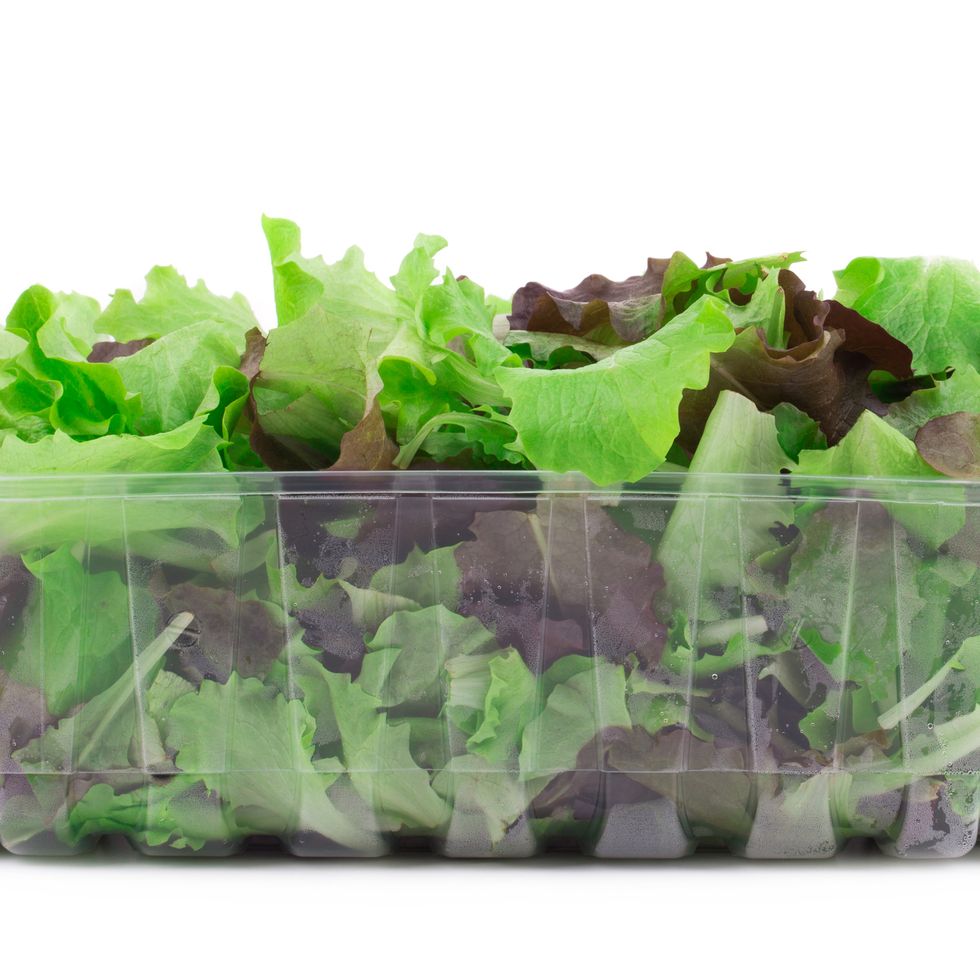 indigolotos//Getty Images
indigolotos//Getty ImagesUse prepackaged lettuce within a few days of purchasing. If unopened, the quality degrades after the best-by date. Toss the whole bag if any pieces are slimy. And if you’ve always wondered if you need to wash it first, it’s fine to proceed without washing if the label says “pre-washed,” “triple-washed,” or “ready to eat.” In fact, washing it again yourself risks cross-contamination with surfaces in your kitchen, says Maples.
Leftovers
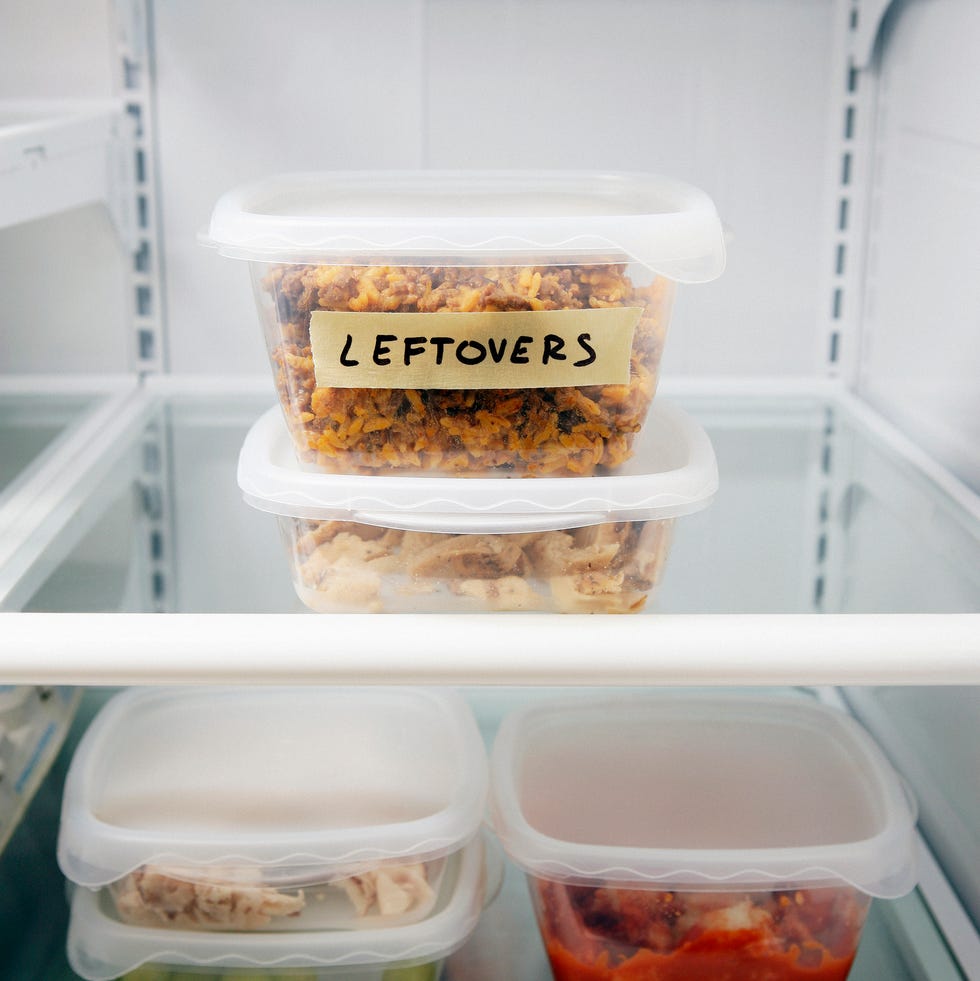 Steven Puetzer//Getty Images
Steven Puetzer//Getty ImagesThese actually last for less time than you may guess. Most leftovers are okay for only three to four days in the fridge. After that, get rid of it or you risk food poisoning, says Zeratsky. Also, refrigerate or freeze food within two hours of cooking. And make sure to cut large pieces into smaller ones or divide casseroles or soups into smaller portions so they'll cool down and reach a safe storage temperature more quickly in the fridge.
Canned Goods
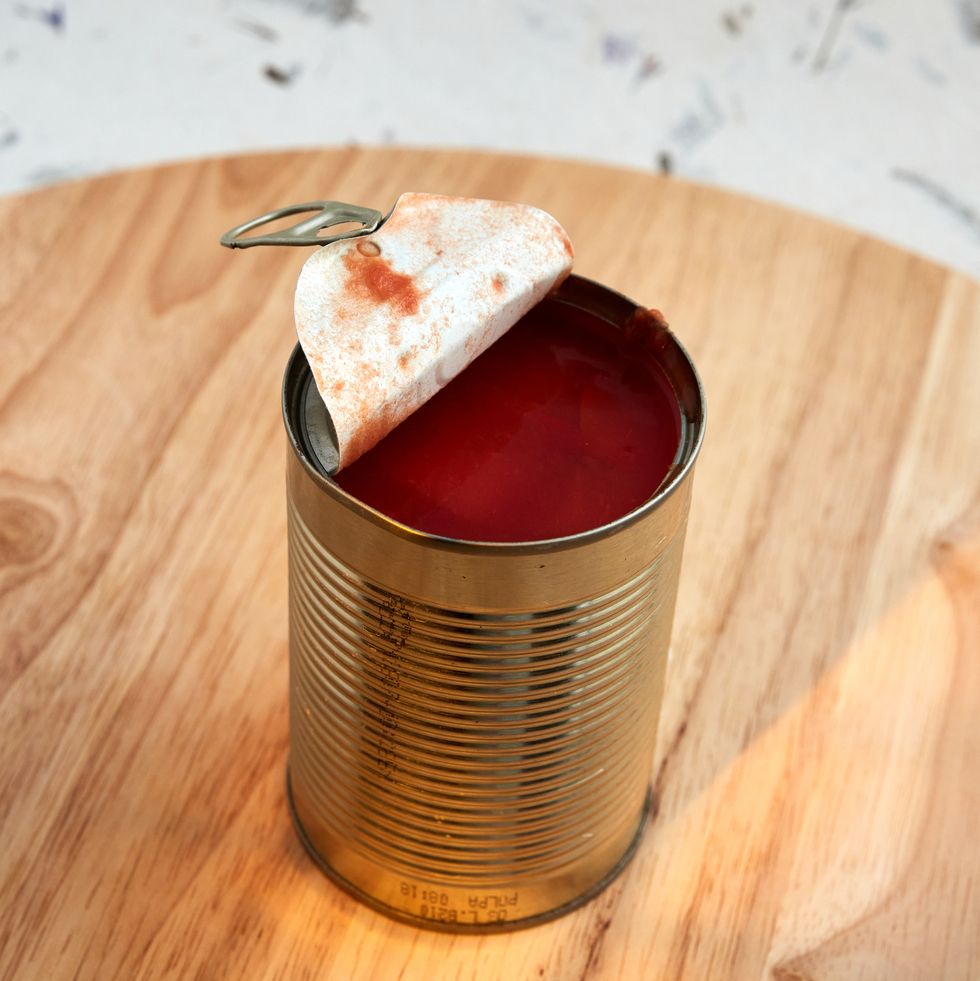 annick vanderschelden photography//Getty Images
annick vanderschelden photography//Getty ImagesCanned goods can be used long past the sell-by date as long as the can isn't damaged, says Zeratsky. High-acid foods, such as tomatoes or pineapple, typically are fine a year past the best-by date if unopened. Low-acid canned goods, such as beans or corn, may last up to 5 years. But throw out any cans with dents, rust, or swelling.
Advertisement - Continue Reading Below
Garlic in Jars (in Oil)
 Kirill Rudenko//Getty Images
Kirill Rudenko//Getty ImagesCommercially-prepared minced or chopped garlic in a jar lasts 8 to 12 months in the pantry unopened or a month or more in the fridge, because it has preservatives to extend its life. But avoid making homemade garlic in a jar, which has a high risk of containing the deadly bacteria botulism due to the presence of these spores in soil, says Maples. When garlic is bottled and covered in oil, the oxygen-free environment promotes the germination of these spores.
Deli Meat
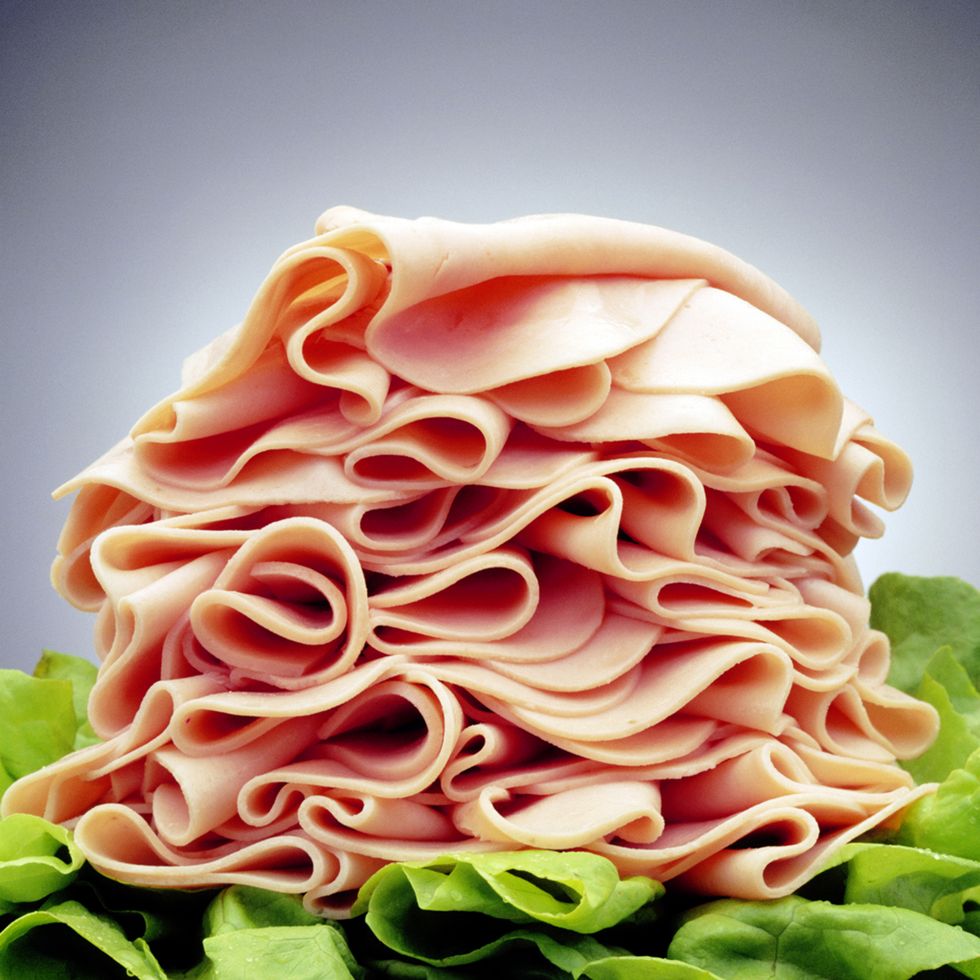 Glowimages//Getty Images
Glowimages//Getty ImagesUnless you're buying prepackaged deli meat in air-tight packaging (this doesn't include what you buy at the deli counter), those hickory smoked turkey slices are only going to last you about 3 to 5 days, says Londa Nwadike, Ph.D., food safety specialist for Kansas State University and the University of Missouri. Don’t wait for it to get slimy or smelly—by then it may already be too late. That's because deli meat can carry Listeria, which grows even in cold temperatures and can cause fever, muscle aches, diarrhea, and serious complications for pregnant women.
Sausage
 Josep Maria Romero Sanchez //Getty Images
Josep Maria Romero Sanchez //Getty ImagesMost types of sausage have a best-by date. Fresh sausages can be stored for one to two days in the fridge. Hard sausages can be stored for up to six months in the pantry or three weeks in the fridge after opening. Hot dogs can be stored for a week opened or two weeks unopened. With all of these meats, the foodborne illness risk is listeria, says Maples.
Advertisement - Continue Reading Below
Mayo
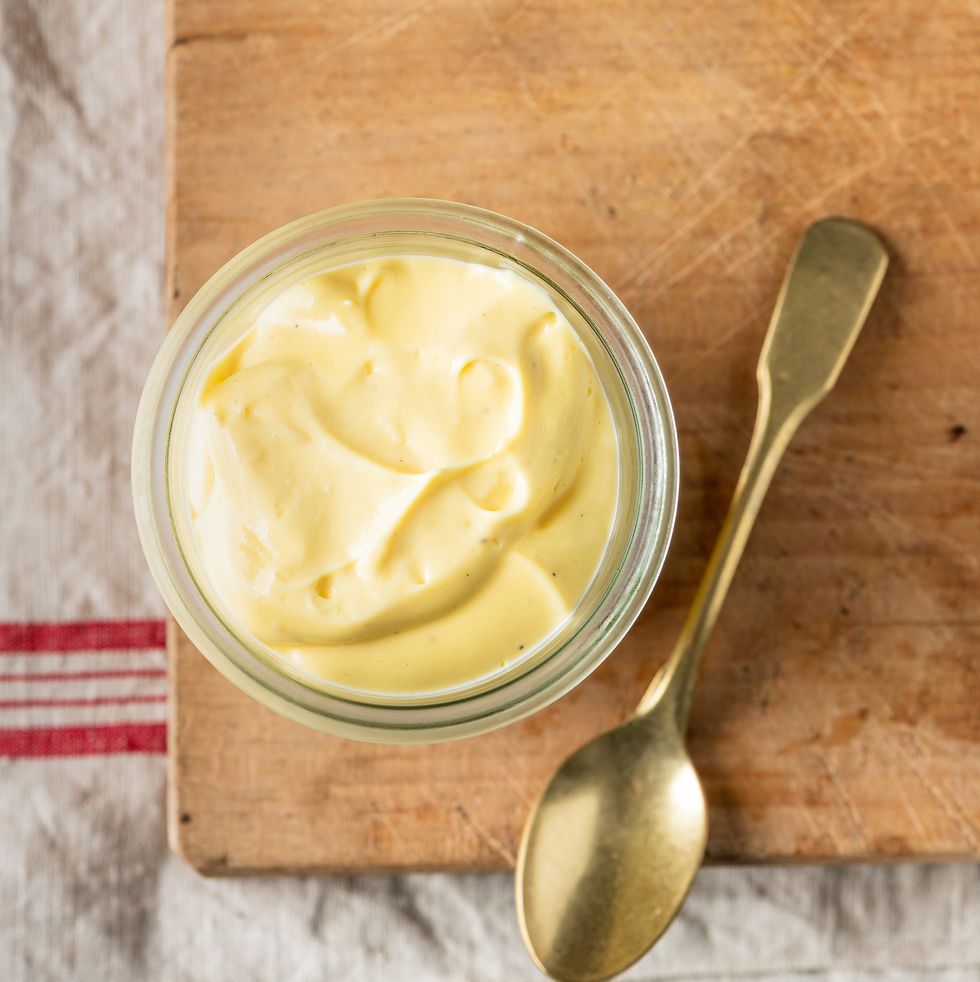 Manuela Bonci / EyeEm//Getty Images
Manuela Bonci / EyeEm//Getty ImagesMayo can last up to six months in the pantry and two months once opened and stored in the fridge, says Maples. If the product quality starts to go downhill or separates, toss it. Like all condiments, spoon out what you need, then use a knife to spread it so you don't dip it back into the container and introduce contaminants that can cause it to spoil faster.
Mustard
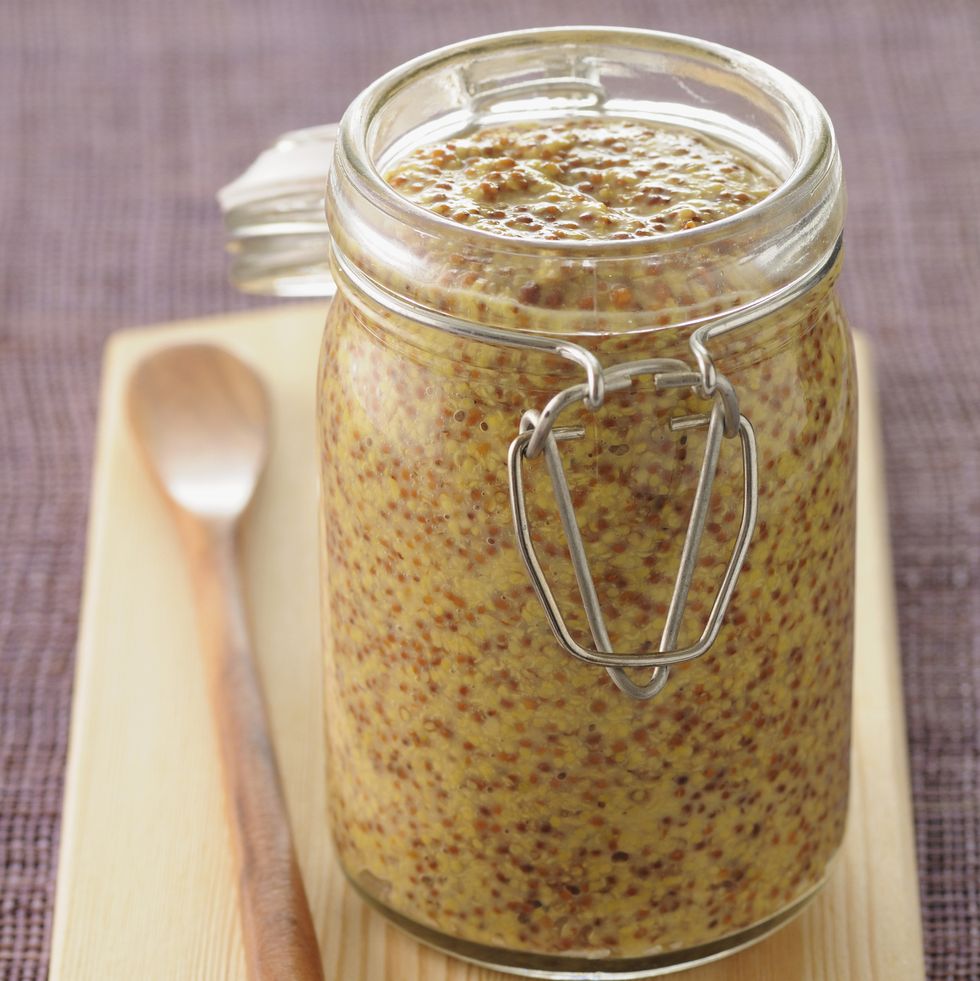 Jupiterimages//Getty Images
Jupiterimages//Getty ImagesIf you love to slather mustard on your sandwich, you've got a long window for keeping it. Because of its acidity, mustard lasts up to a year in the fridge after opening, says Maples. If it’s unopened but past its best-by date and starts to separate or change color, it’s probably still okay and is more of a quality issue.

Stephanie Eckelkamp is a freelance writer, health coach, and former associate editor for Prevention covering health, food, and nutrition. She’s a graduate of Syracuse University and obsessed with dogs, exploring the great outdoors, and chunky peanut butter.

Arricca SanSone writes for CountryLiving.com, WomansDay.com, Family Circle, MarthaStewart.com, Cooking Light, Parents.com, and many others. She’s passionate about gardening, baking, reading, Polish pottery, vintage cookbooks, and spending time with the people and dogs she loves.
Advertisement - Continue Reading Below
Advertisement - Continue Reading Below
Advertisement - Continue Reading Below
